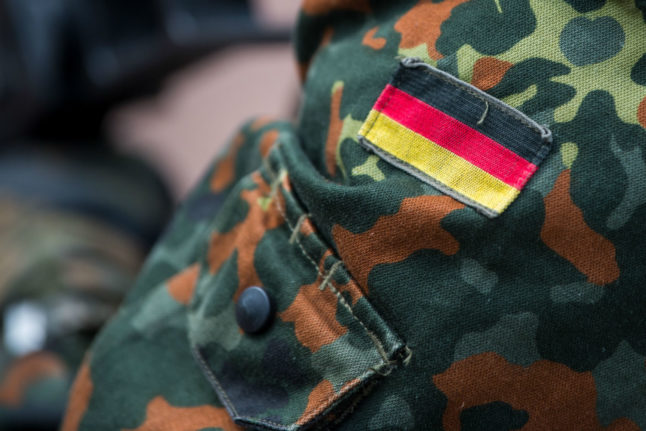Dressed in a flashy black belly-dancing outfit, Nancy is a hobby transgender dancer from Iraq, ready to take to the stage with full make-up and skinny high heels. She is preparing to entertain more than 200 other Arab gays, lesbians and transgender people in Stockholm, Sweden.
The setting is the Stockholm headquarters of the Swedish Federation for Lesbian, Gay, Bisexual and Transgender Rights (RFSL). The occasion is the launch of Arab Initiative, the first Arab LGBT rights group in Europe.
Nancy has been in Sweden six years now. She lives with her Iraqi family in a Stockholm suburb and hides her preferred gender identity and hobby from her family.
“I was a hobby trans even back in Iraq. I believe most of my friends back then were bisexuals, they just refused to admit it, even if I had a relationship with them,” Nancy says, as she keeps watch of the entrance to the RFSL party premises.
She lets a fellow Iraqi in, and kisses him on both cheeks. Turning around, Nancy says her family would never accept her lifestyle and explains how she has to stay out with other Iraqi friends when she’s in town dressed up as the person she prefers to be.
“However, people here are more open to accepting a transgender belly dancer than in the Middle East.”
Ali, who started the Arab Initiative, takes some time off from serving alcoholic and non-alcoholic drinks to members and their friends to speak about the purpose of the organization.
“Our aim is to create new bridges between European and Arab cultures, spread information about the Arab world in Sweden, support LGBT people with an Arabic background, and hopefully to bring more tolerance and understanding of their issues and defend their rights in Sweden and abroad,” he says.
“We as Arabs are discriminated against in general as an immigrant group, and then we are discriminated against again amongst our own minority for being gay,” he adds.
Ali and his peers have received funding from the European Union, which supports several LGBT organizations for immigrant minorities around Europe.
Since its establishment last May, the Arab Initiative has held parties, partaken in two Pride festivals, arranged three film showings, and four seminars.
“We have been making connections with LGBT groups in the Middle East, promoting ourselves locally through word of mouth, and standing up for LGBT rights against media producers who portray this particular group in a negative way.”
Ali adds that it is not a political organization, but mostly a place for Arab LGBT people to find support and meet their peers.
Karin Båge, head of RFSL in Stockholm, says that her group was contacted by the Arab Initiative. RFSL quickly gave the group full access to its premises, skills, and contacts.
The difficulties faced by gays in Iraq was brought into sharp relief this week as Human Rights Watched published details of a murderous militia-led campaign against homosexuals in the Middle Eastern country. In response, RFSL called on the Swedish government to halt all deportations to Iraq of people who have sought asylum on the basis of sexual orientation or gender.
“We urge Sweden to investigate the possibility of evacuating homosexuals, bisexuals and transgender people who are at risk of being subjected to ‘sexual cleansing’,” RFSL chairperson Sören Juvas wrote in a press release on Monday.
Sa’ad Ibrahim, 37, is an Iraqi citizen who was granted asylum last May after being threatened with death due to his sexual orientation.
“One day in 2006, I received a call between 8 and 9 in the evening when I had arrived home from work. A friend of mine told me that another friend of ours had disappeared. So we asked around and after ten days we found out that his dismembered body had been found. Three of my friends were killed this way. I am the only one alive in my previous circle of friends,” Sa’ad tells The Local.
He had previously received written threats in his ladies’ shoe shop in a conservative Shiite district of Baghdad, where he was told he was a “fag” and that “God hates fags.”
“Around 9.30 to 10 at night there were six people asking about me around the corner. I got the message to leave before they made it to my shop: I escaped through the back door and left everything behind me. I went far away to my uncle’s place where I stayed for the next five months. Every day I would imagine myself torn to pieces.”
He made his way to Sweden through a smuggling network, using up all the money he had managed to gather. When he came to Sweden he was devastated and lonely, he says.
“Now I am very happy because here I am able to mingle and mix with all sorts of people. I met an Iranian man who became my boyfriend. I fell in love with him, as he took me to the Pride festival, which turned my life around 180 degrees. I was totally amazed by the energy of the festival.”
Meanwhile, it was time for Nancy to mount the stage and wow the crowd with her belly dancing shakes to Arabic music. Swedes, Arabs, Africans and people of other ethnicities, men and women, straight and gay, gathered around the stage and clapped to the rhythm – a sight unseen in any Arab country.
Ali said the Arab Initiative will be organizing similar parties this autumn. The soonest will be in observation of Ramadan, the holy fasting month in the Islamic calendar, which starts this Saturday.



 Please whitelist us to continue reading.
Please whitelist us to continue reading.
Member comments